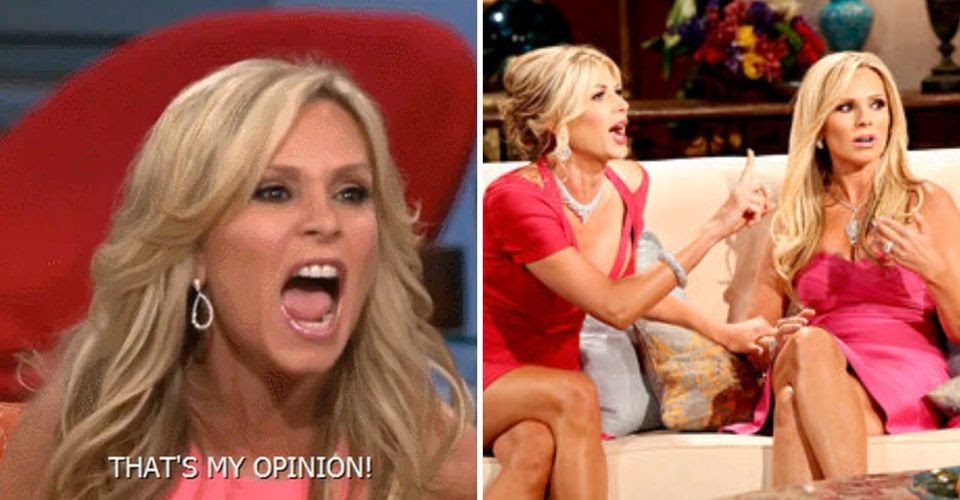media update’s Taylor Goodman discusses the effect reality TV has had on the media and television industry, and what keeps audiences glued to their screens.
So what is reality television? Annette Hill, author of
Reality TV: Audiences and Popular Factual Television defines it as being “
located in broader territories, between information and entertainment, documentary and drama.”
She continues, explaining that reality TV includes “
non-professional actors, unscripted dialogue, hand-held cameras [and] seeing events unfold as they are happening in front of the camera.”
Whether you’ve watched all 40 seasons of
Survivor, enjoy binge-watching
Love Island or are trying to keep up with the Kardashians, there is major variety in the type of programming that reality television has to offer.
This is just one of the reasons why viewers
love this content — but let’s really get into the thick of how reality TV affects the media and audiences alike.
How reality TV changed the television industry
Bozoma Saint John, chief marketing officer of Netflix, says, “
Pop culture and entertainment can be dismissed as surface, but it's not. It's the language we all speak, and it's the connection point between people all over the world.” And if anything is an amalgamation of pop culture and entertainment — it’s
reality television.
Television was once a luxury that only the wealthy could afford, but
since the medium became commercialised in the 1950s, it has cemented itself as a powerful and trusted source of information. As television grew in influence, audiences became hungrier for content.
The earliest iterations of reality TV — namely
Candid Camera, the Miss America Pageant or An American Family birthed many more titles that would change the way we watch television, and alter the media industry forever.
These days, you can’t channel surf or browse streaming platforms without being bombarded with reality TV shows. Not only does this television format dominate your viewing but it is a popular topic of discussion on social media, in gossip magazines as well as in online forums.
While we are on the topic of social media, it has propelled reality television into the stratosphere. Platforms like Twitter are filled with reactionary gifs and memes derived from this medium, as well as it is riddled with commentary from its users about said TV shows.
 © Screenrant
© Screenrant
In many ways, reality television gives the audience a great deal of power. In some instances, they can directly influence the content of these programmes through voting on shows like
American Idol or
Love Island. Or they can even take control of the narrative purely through commentary on social media.
Take the reality dating show
The Bachelor for instance. Here, the audience does not have a direct influence on the show but through the online community that is ‘Bachelor Nation’, which can sway the show's outcome.
An example of this is during the 24
th season of the show when contestant Victoria Fuller was ousted by members of Bachelor Nation for modeling for a ‘white lives matter’ brand prior to being on the show.
Previously, Fuller had won a challenge where she was to appear on the cover of
Cosmopolitan but after the news of her controversial past came to light, her cover was pulled.
This is one of many examples where audiences can directly influence the content of reality TV purely through the power of social media.
So if you’re wondering how exactly this medium shifted the media landscape, the answer is simple:
reality television monopolises the media.
From a media standpoint it is important to note that reality TV is significantly cheaper to produce than scripted television. E! Online states that “
a 30-minute episode of reality TV costs approximately $100 000 to $500 000 to produce.” This pales in comparison to the millions it takes to produce scripted TV.
It is clear that reality television is majorly popular, both with broadcasters and audiences worldwide. But
why do we, as a society, love reality programming so much?
The psychology behind why audiences love reality television
The allure of reality television is fascinating to dissect; it’s real people doing real things, and this is relatable to the audience.
Although the true authenticity of reality TV is often a topic of debate — this is what attracts viewers to the medium. Annette Hill offered insight into this stating that reality TV offers “...
viewers a true and unmanipulated window onto the lives and characters of real people.”
Another point of attraction for viewers is the inspirational aspect. When watching programmes like
The X Factor, viewers see average people rise to stardom, and this seems attainable to them, leaving many wondering, ‘
if they can do it, why can’t I?’
More often than not, the viewer in question
does have a chance to join a reality show, if they so please. And this could quickly catapult them to fame, especially with the power of social media.
From
Pawn Stars to
Jersey Shore — and everything in between — another appealing attribute of reality TV is its broad range of programming.
Consumers love this variety because it gives them options to choose from according to whatever mood they’re in. Additionally, because of this diversity in programming, reality TV is inclusive. There really is something for
everyone.
Lastly, reality television is unadulterated, unfiltered entertainment. This has a major pull factor with audiences, with
28% of US adults stating that their primary reason for enjoying the genre is because they liked the drama.’
What is your favourite reality TV show? Be sure to let us know in the comments section below.
*Image courtesy of Vecteezy